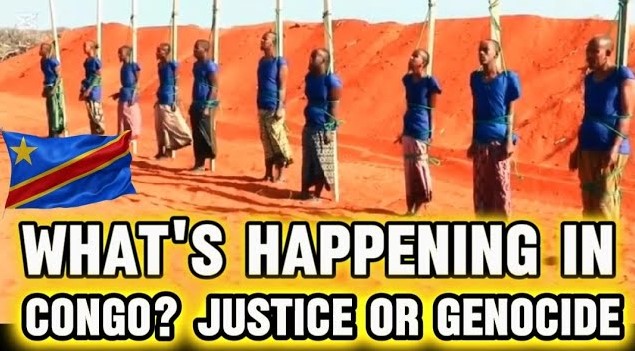Congo Executes 102, Plans 70 More Death Sentences: Crime and Punishment
Mass Executions Shake Congo: 102 Killed, 70 More Set to Die
The Democratic Republic of Congo is in the global spotlight after authorities executed 102 individuals labeled as “urban bandits,” with plans to execute 70 more in what is being called one of the most controversial crackdowns in recent history. This harsh response to rising crime has sparked widespread fear, grief, and outrage, both within Congo and internationally.
“Will Executions Bring an End to the Kulunas’ Brutality?”
The Kulunas: Congo’s Notorious Urban Gangs
The Kulunas, derived from the Lingala word “kuluna,” meaning machete, are violent urban gangs in the Democratic Republic of Congo (DRC) that have terrorized communities for years. These gangs, known for their brutality, predominantly operate in major cities such as Kinshasa, Lubumbashi, and Matadi, and have become a symbol of lawlessness in the country.
Origins and Background
The Kulunas emerged in the late 1990s and early 2000s as a result of widespread unemployment, poverty, and the disintegration of state institutions. With limited economic opportunities and little government intervention, many young men in urban areas turned to gang life as a means of survival.
The group’s structure is loosely organized, with individual gangs controlling specific territories within cities.
Criminal Activities
The Kulunas are infamous for their violent tactics, often using machetes, knives, and other crude weapons to commit crimes. Their activities include:
- Armed Robbery: Attacking individuals in broad daylight or at night, especially targeting pedestrians and motorists.
- Extortion: Demanding protection money from local businesses and residents.
- Assault and Murder: Inflicting physical harm on victims who resist or fail to comply with their demands.
- Gang Wars: Fighting rival gangs to assert territorial dominance, leading to collateral damage and fear in communities.
Their methods are marked by extreme cruelty, often leaving their victims severely injured or dead. This has earned the Kulunas a reputation as one of the most feared groups in the DRC.
Impact on Society
The Kulunas’ reign of terror has paralyzed urban communities, particularly in Kinshasa, where their presence is most prominent.
- Fear and Insecurity: Residents avoid traveling at night or through certain neighborhoods due to the high risk of being attacked.
- Economic Strain: Businesses in gang-controlled areas suffer from extortion demands and declining customer traffic due to safety concerns.
- Erosion of Trust: Many citizens have lost faith in the government’s ability to protect them, further destabilizing society.
Government Response
The Congolese government has struggled to address the Kulunas problem, with law enforcement often overwhelmed or complicit. Recently, the government has escalated its response through controversial measures, including mass arrests and executions.
In March 2024, the DRC lifted a 20-year moratorium on the death penalty, targeting the Kulunas in an aggressive crackdown. The government claims these measures are necessary to restore order, but critics argue they undermine human rights and due process.
Human Rights Concerns
International organizations, including Amnesty International and the United Nations, have condemned the government’s actions, citing concerns about:
- Lack of Fair Trials: Alleged Kuluna members are often sentenced in rushed proceedings without proper legal representation.
- Risk of Misidentification: Innocent individuals may be caught up in the crackdown due to arbitrary arrests.
- Excessive Force: The mass executions are seen as a disproportionate response to crime.
Addressing the Root Causes
Experts and activists argue that addressing the root causes of the Kulunas phenomenon—poverty, unemployment, and lack of education—will yield more sustainable results than punitive measures.
Programs aimed at youth empowerment, education, and economic development are essential to prevent young people from being drawn into gang life.
Outlook
While the government’s hardline approach has temporarily curbed some gang activities, it risks alienating the population and exacerbating social tensions. The Kulunas remain a symptom of deeper systemic issues in the DRC, and only comprehensive reform can ensure long-term peace and security.




